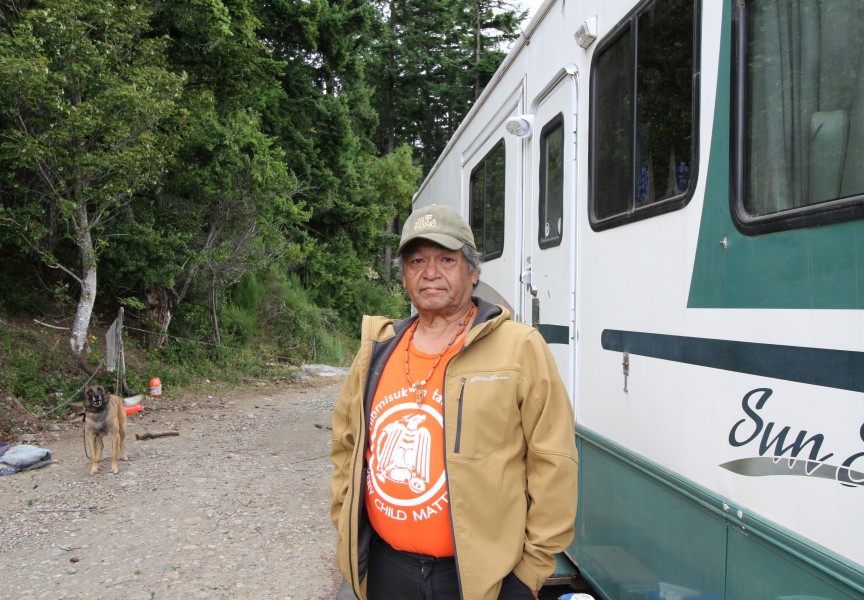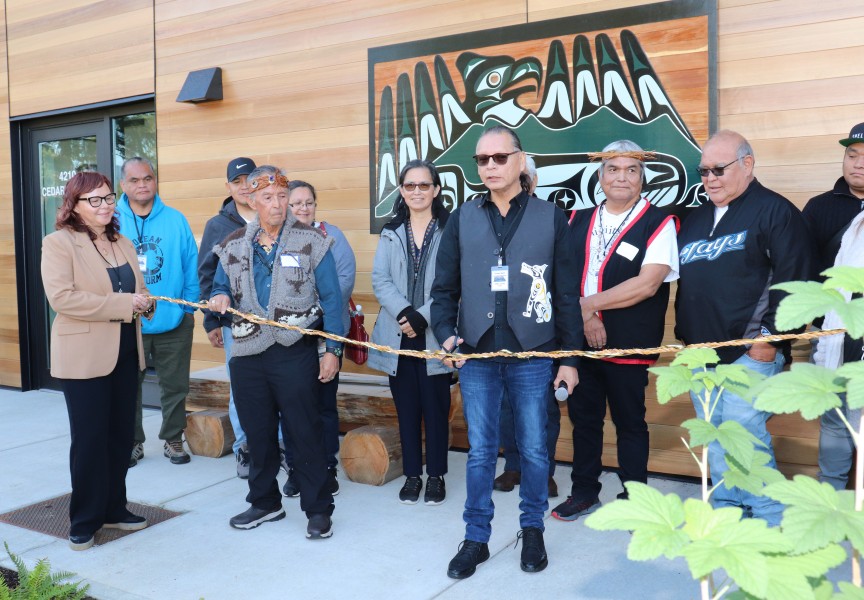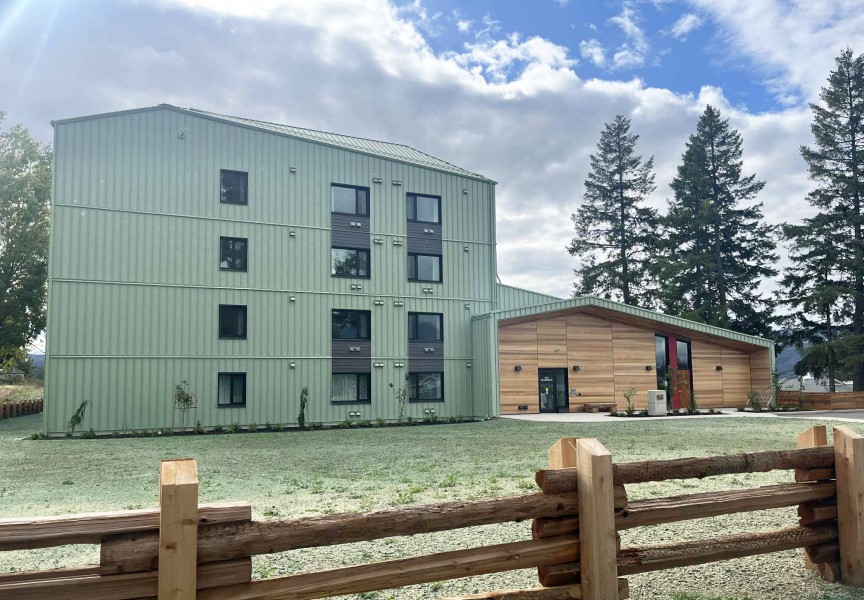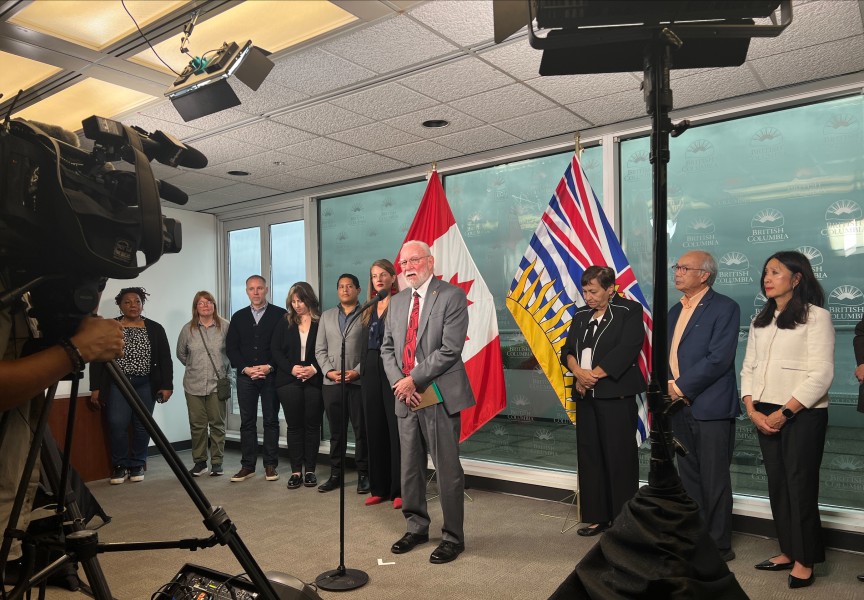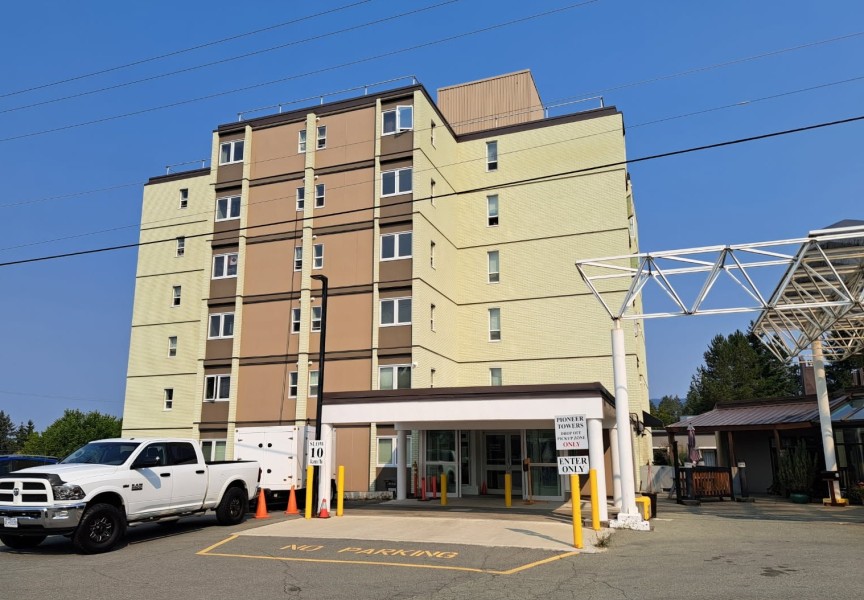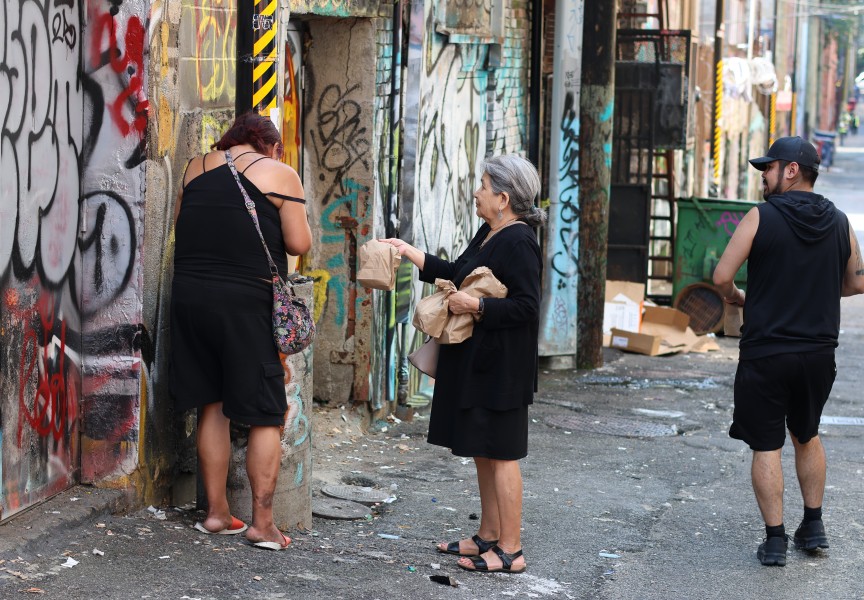Questions are swirling about why subsidized housing units in Port Alberni remain empty, while low-income families are on long waiting lists to get into affordable homes.
Port Alberni residents seeking homes have noticed that some suites in low-income complexes have been empty for years after the last tenants moved out. They’ve taken to social media to ask why.
In early February a social media user asked why so many units in a subsidized low-income housing complex have been empty for years, even though there is a long wait list of families in need of housing. The user claimed there were seven empty units in one complex and at least one in another complex that have been empty for extended periods of time. Another person commented that four units in the south end of Port Alberni have been empty “for a couple of years, now”.
There are several subsidized housing complexes in Port Alberni, including older BC Housing townhouses at Dogwood and 8th Avenue, Gertrude Street, 4th Avenue and 8th Avenue.
In later years, the M’akola Housing Society built three more complexes in Port Alberni at 3777 Argyle Way, 4950 Neill Street and 3737 Bruce Street. These units are designated for Indigenous people only.
Based in Victoria, BC, M’akola Housing Society is the largest Indigenous affordable housing provider in British Columbia, serving more than 5,000 people. It got its start in 1979 out of the Victoria Native Friendship Centre when a committee was formed to address housing issues for Indigenous families. Their goal was to come up with housing solutions for Indigenous people living in the city.
“At the time many landlords refused to rent to Indigenous families,” states the society on its website.
In 1984, the Victoria Native Housing Society was launched, leading to the construction of the first Indigenous-only housing complex in that city. In 1988 they changed their name to M’akola Housing Society and began expanding operations up island and on the mainland. Today, M’akola manages close to 2,000 homes serving both Indigenous and non-Indigenous people.
BC Housing owns many complexes in Port Alberni. At least four townhouse complexes were built to serve low-income families in the city. They are at the 4100 block of 8th Avenue, 5100 block of Gertrude Street, 4500 block of Dogwood Road and the 2400 block of 4th Avenue.
These complexes are managed by M’akola Housing Society under the administration of the Aboriginal Housing Management Association (AHMA).
“AHMA oversees funding and operating agreements with Indigenous housing providers, such as M’akola,” stated the housing management association.
According to Kelly Moon of AHMA, both 4502 Dogwood St (George Dowling Place) and 4950 Neill Street in Port Alberni are properties operated by M’akola Housing Society, a member of the AHMA. Both have vacant units, some for extended periods of time.
Moon told Ha-Shilth-Sa in an email that the George Dowling location has 10 vacant units. Five units are being “turned over”, meaning they are actively under repair. Another two units will be turned over after quotes for repairs are done. Three other units are ready to rent and M’akola is screening applications, according to Moon.
There are four vacant homes at the Neil Street location that are ready to rent, she added. Moon says M’akola is screening applications for that location as well.
While Moon did not indicate how long the homes remain empty after a tenant moves out, she did note that AHMA has been underfunded.
“In recent years, some AHMA members have struggled to turn over units due to chronic underfunding. The lack of new funding available to AHMA members is causing widespread strain on our housing providers and leading delays with unit maintenance and turnover,” she wrote in an email.
“Where it used to cost approximately $1,800 to refresh a unit between tenancies, it now costs approximately $9,000 to do very basic maintenance and repairs on units that are often tenanted for over 10 years,” she told Ha-Shilth-Sa.
Uncontrollable cost increases far outpace the funding levels provided to non-profit Indigenous housing and service providers, she added.
Funding is so tight that in the past four years AHMA members have been faced with questions like how to address urgent maintenance backlogs, or if they should pay skyrocketing insurance premiums or close buildings, noted Moon. Should programs be cut due to lack of staffing? And most importantly, the organization faces issues as to whether or not to leave units vacant due to financial barriers around unit turnover – despite a high local demand for affordable housing.
BC Housing said in an email that it recognizes the need to provide safe, affordable homes for people in Port Alberni and across the province and works to make vacant units available to new renters as soon as possible.
“Units may be temporarily unoccupied because they are being cleaned in preparation for occupancy, awaiting move-in of new tenants, being repaired, or undergoing major renovations or upgrades,” stated the provincial agency.
Many in Port Alberni are aware that two BC Housing complexes were severely damaged by house fire. Two or three townhouses in the Dogwood complex required major renovations after a 2020 fire. Another house fire in a townhouse on Gertrude Street several years ago damaged at least three units.
“We are aware of a fire at a privately owned apartment complex on Dogwood Street in 2020. The site is not owned by or funded through BC Housing, and we cannot comment on any vacancies this building may have,” stated BC Housing in an email.
“We know more affordable housing is needed in Port Alberni, which is why we’ve worked with partners to open more than 420 homes in the community since 2017, with approximately 90 more underway,” BC Housing added.
“M’akola offers a variety of housing to suit the needs of our applicants and tenants,” stated M’akola on its website. “We offer family housing in townhouse complexes, apartment buildings and single-family dwellings. M’akola also offers housing geared to singles and couples and has two assisted living facilities for our elders and seniors.”
AHMA says they need a funding increase to stabilize existing housing and services.
“Every dollar invested in AHMA members generates a direct return of 300 per cent and a social return of 700 per cent leading to stronger communities with better health and education outcomes, lower costs on emergency services, shelters, and healthcare,” wrote Moon, adding that funding for subsidized homes leads to “a more stable and resilient Indigenous housing sector that prevents displacement and housing insecurity.”





